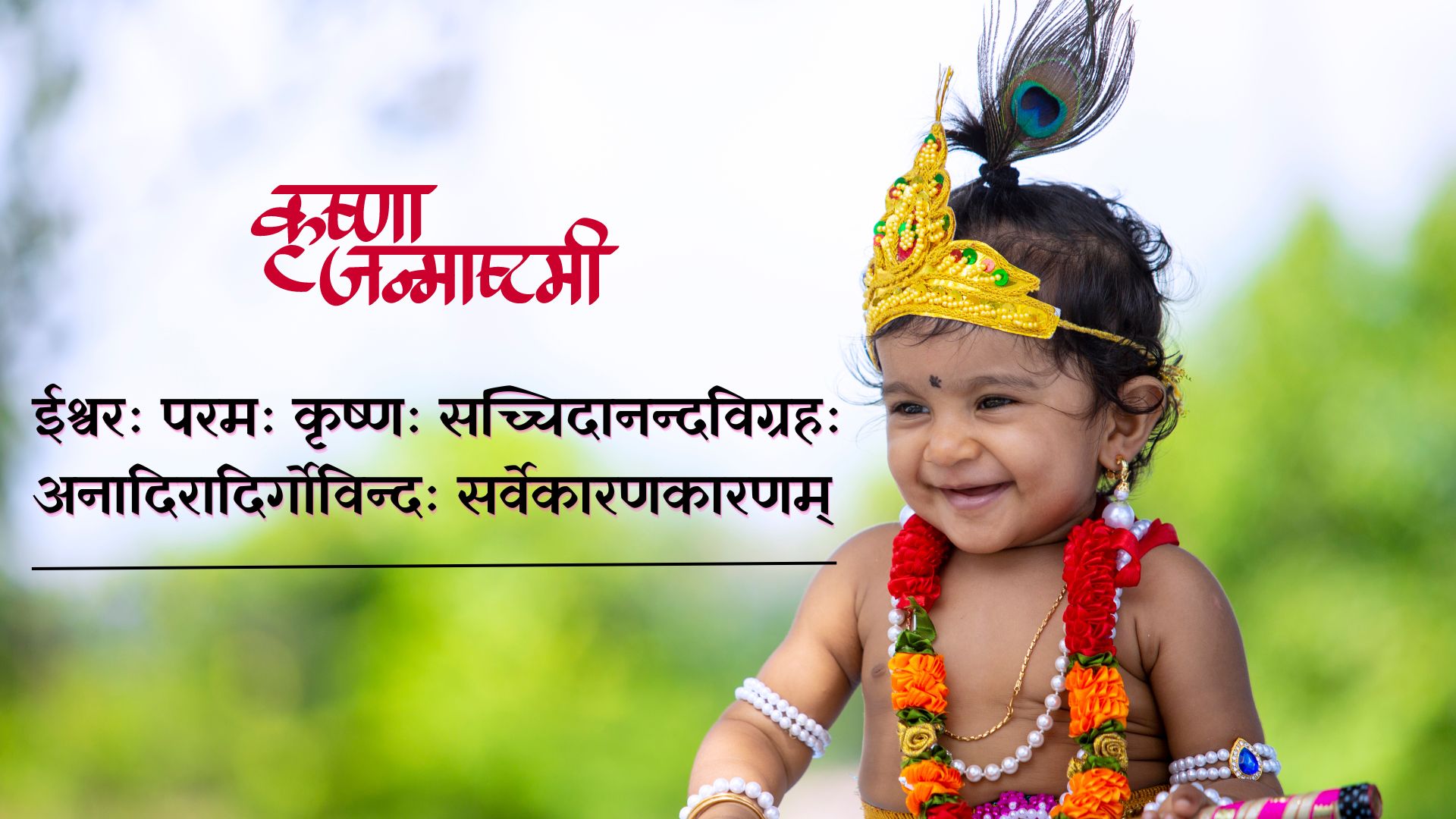
वसुदेव सुतं देवं कंस चाणूर मर्दनम्, देवकी परमानन्दं कृष्णं वन्दे जगद्गुरुम्
The celebration of Lord Krishna's birth occurs on the eighth day of the Krishna Paksha, the second half of the Sravana month. The term 'Janma' signifies birth, and 'Ashtami' denotes the eighth day, hence this joyous occasion is referred to as 'Janmashtami'. Additionally, it is also known as 'Gokulashtami' in honor of Lord Krishna's childhood spent in the town of Gokula.
Krishna's arrival into the world took place during a time of turmoil, characterized by widespread persecution, the denial of freedom, pervasive evil, and a looming threat to his life from his uncle, King Kansa. Immediately after his birth, Krishna's father, Vasudeva, undertook a journey across the Yamuna River to place Krishna under the care of foster parents in Gokul, named Nanda and Yashoda. This legendary tale is commemorated on Janmashtami with fasting, the singing of devotional songs expressing love for Krishna, and a nightlong vigil.
Following Krishna's birth at midnight, baby Krishna statues are ritually bathed and clothed before being gently placed in a cradle. This narrative is excerpted from the source provided.
(-:-)
भजे व्रजैकमण्डनं समस्तपापखण्डनं स्वभक्तचित्तरञ्जनं सदैव नन्दनन्दनम्।
सुपिच्छगुच्छमस्तकं सुनादवेणुहस्तकं अनङ्गरङ्गसागरं नमामि कृष्णनागरम्॥१॥
I worship the naughty Krishna, who is the joy of Nanda. the only ornament of Vraja, who destroys all the sins (of his devotees), who satisfies the desires of his devotees. Who wears a peacock feather on his head, who plays a flute with a sweet sound, and Who is the ocean of the art of love.
Hindi translation: मैं नटखट श्रीकृष्ण की पूजां करता हूँ, जो नंद का आनंद हैं। व्रज के एकमात्र आभूषण, जो (अपने भक्तों के) सभी पापों को नष्ट कर देते हैं, जो अपने भक्तों की इच्छाओं को पूरा करते हैं। जो अपने सिर पर मोर पंख धारण करते हैं, जो मधुर ध्वनि वाली बांसुरी बजाते हैं, और जो अथांग प्रेम का सागर है।
(-:-)
दिने दिने नवं नवं नमामि नन्दसंभवम्।
